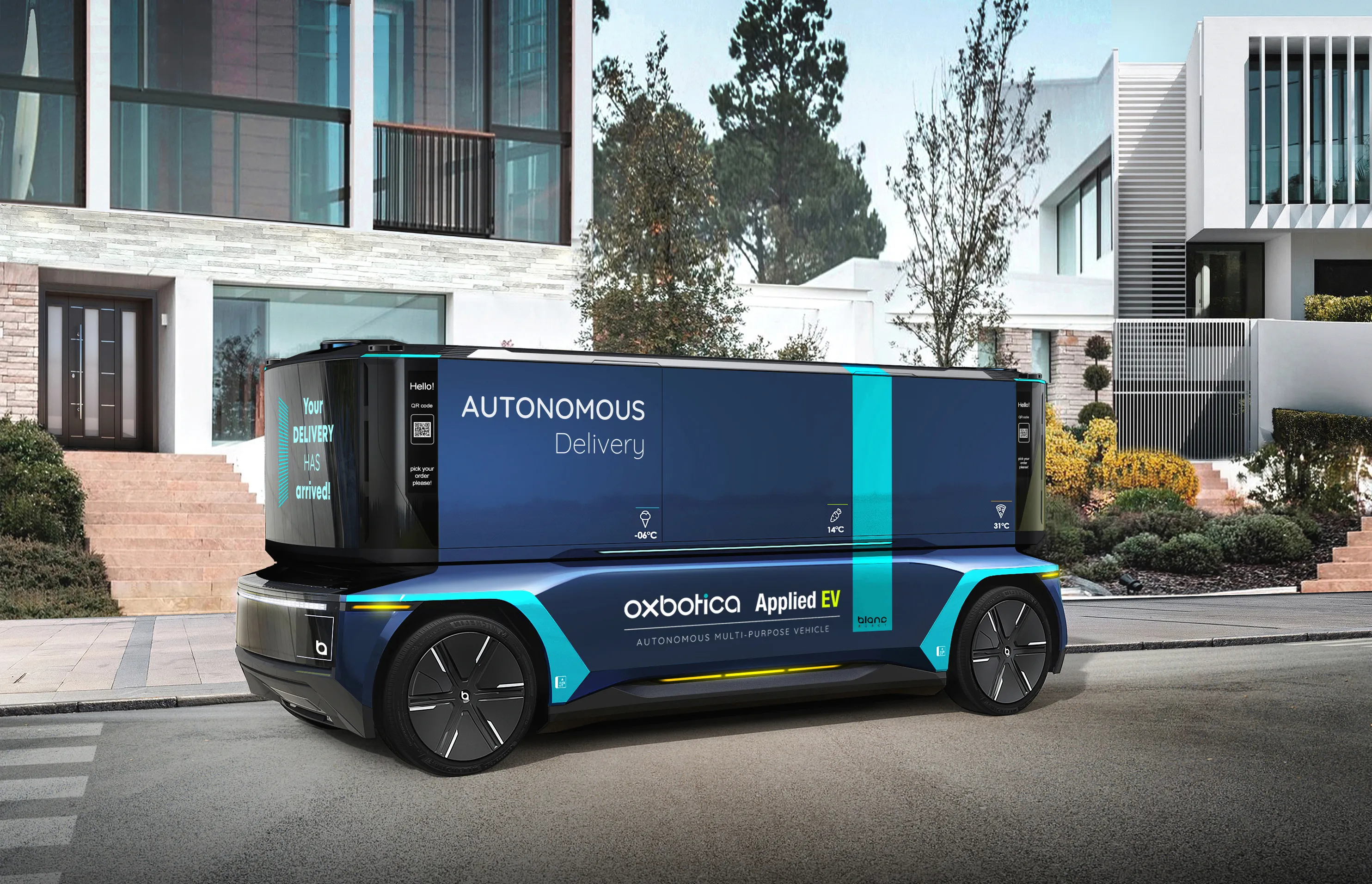
Oxbotica has teamed up with AppliedEV to develop an autonomous, multi-purpose electric vehicle (EV) capable of being deployed in industrial logistics and goods delivery industries.
As part of the deal, Oxbotica is to integrate its autonomous vehicle (AV) software with AppliedEV's Blanc Robot vehicle platform.
Blanc Robot comes with an all-wheel-drive system, in either an off-road or on-road specification.
Oxbotica says the battery size is matched to the duty and charge cycles, with total efficiency up to 10 miles/kWh.
AppliedEV says Blanc Robot is designed to operate as a fully autonomous vehicle, using ‘pods’ that can be configured for specific applications
AppliedEV founder Julian Broadbent says: “The real value of automated vehicles is to operate without the presence of a driver with high levels of safety. There are not many instances where you will find full autonomous vehicles in the market doing a real job, with real economics. Removing the driver and passengers reduces the risk and creates new levels of value and service.”
Earlier this year, Oxbotica received a $47 million investment boost to accelerate the commercial deployment of its autonomy software platform.










